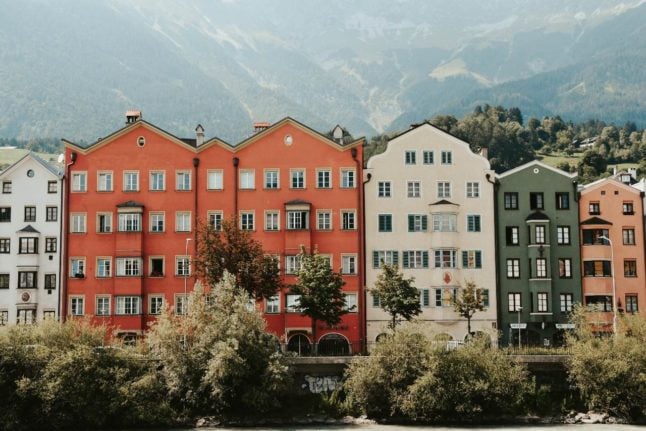It may seem like people in Austria (and much of the world) have been hit with hard news non-stop for the past few years. From the coronavirus pandemic to the invasion of Ukraine and following the energy crisis, there has been barely any respite.
A 2022 research showed that a large part of the Austrian population looked to the future with scepticism and pessimism, especially when it comes to the economic situation.
Almost half of the Austrian population (47 percent) eligible to vote (Austrian citizens older than 16 years old) said they are looking to the near future with scepticism and pessimism. Only 23 percent expressed optimism and confidence.
READ ALSO: Five of the biggest challenges facing Austria right now
They were even gloomier when it came to evaluating the economic situation, as 62 percent said they expect it to deteriorate.
But there are a few reasons to be optimistic about life in Austria in 2023
The energy crisis has been contained
Firstly, while many feared that decreasing influx of Russian gas to Europe could lead to a significant shortage – with some predicting the continent would “freeze” – that did not come to place.
Austria, in particular, has been highly effective in cutting its ties to Russian energy imports and is no longer heavily dependent on Russian gas.
READ MORE: How expensive are gas and electricity in Austria right now?
Before the war in Ukraine, it sourced around 80 percent of all gas from Russia and had gas reserve tanks at only approximately 12 percent capacity. However, by September, Austria had already reduced imports of Russian gas to 21 percent and had its gas tanks well stocked at just over 95 percent. Moreover, with the current mild winter in the Alpine country, storage is likely to maintain high levels.
Of course, the country was able to purchase gas from other sources, but the deals, some of which expire before the next winter season, will need to be renewed and renegotiated. Other solutions, including expanding renewable energy infrastructure, are also long-term and results won’t be seen until the coming years.
Still, compared to the alarm many felt almost one year ago, the energy situation in Austria is definitely something to be optimistic about.
READ ALSO: ENERGY: How Austria has drastically reduced imports of Russian gas
Covid-19 becomes endemic
After almost three years of restrictions, fear and thousands of deaths, the coronavirus pandemic seems to have reached a new endemic phase. One in which people can resume their everyday lives, take their yearly vaccinations and be more careful around those who are more vulnerable.
In 2023, Covid-19 looks to become endemic, like the flu, and we likely won’t require major restrictions such as lockdowns and contact tracing. The virus will continue to circulate, but hygiene measures and vaccination will prevent most serious cases,
READ ALSO: Colds and flu: What to do and say if you get sick in Austria
Austrian experts such as virologist Dorothee von Laer of the Medical University of Innsbruck have agreed that the pandemic is “over”. Von Laer said the coronavirus has now joined the ranks of other colds or viral infections, according to Austrian media.
She cited the broad basic immunity that now exists in the population, which means that far fewer people fall ill, and if they do get sick, it is not as severe as in earlier times.
READ ALSO: Long Covid: What support is available in Austria?

Inflation stabilising and cushioning measures
Even though it is still at a high level, the inflation rate seems to have stabilised in Austria. After reaching double digits in 2022, the consumer price index could fall back to 6.7 percent in 2023 and 3.3 percent in 2024, according to an EU Commission estimate.
Austria’s Institute for economic research WIFO has a similar prediction: the economists said in 2023, inflation should slow to 6.5 percent as energy prices also fall.
Several government measures aimed at dampening the effects of the rising cost of living will also be in place in 2023, including one-off bonus payments and tax changes. In addition, the tax reform, electricity price brake, government aid and more mean households will be able to save thousands of euros in 2023.
READ ALSO: Tax cuts and bonus payments: Austria’s financial measures that will benefit people in 2023
Employment market
“The situation on the labour market remains favourable and is expected to deteriorate only temporarily as a result of the economic downturn”, economist Stefan Ederer at WIFO wrote.
After a significant decline in 2022 (6.3 percent), the unemployment rate will rise slightly to 6.5 percent in 2023 due to weaker employment dynamics and fall back to 6.2 percent in 2024.
Many high-paying job positions are still open as Austria faces a labour shortage in areas including IT, healthcare and education. Federal healthcare reform will also raise working conditions (and salaries) in the sector, trying to attract the thousands of health workers Austria needs.
READ ALSO: Health care reform: Austria to give €2,000 bonus to nursing staff
Concerts, events, travel and more
New Year’s Eve 2022 marked the return of one of the many events cancelled during the pandemic years, the Silvesterpfad, with hundreds of thousands of people in Vienna’s city centre. The crowds ushered the new year and celebrated that last mark of the “end of the pandemic’.
Now, 2023 is set to be the first year since 2023 with little to no restrictions when your summer travel (and if you are going to Croatia, more good news as the Balcan country joins the Schengen area) is safer than ever and plans can again be made perhaps even without a cancellation policy.
Austria has countless events to make for a very enjoyable and optimistic 2023, from film festivals, the Donauinselfest, the Salzburg Festival, Vienna Pride or just plain swimming in lakes and rivers – or visiting museums without fear of being indoors.



 Please whitelist us to continue reading.
Please whitelist us to continue reading.
Member comments